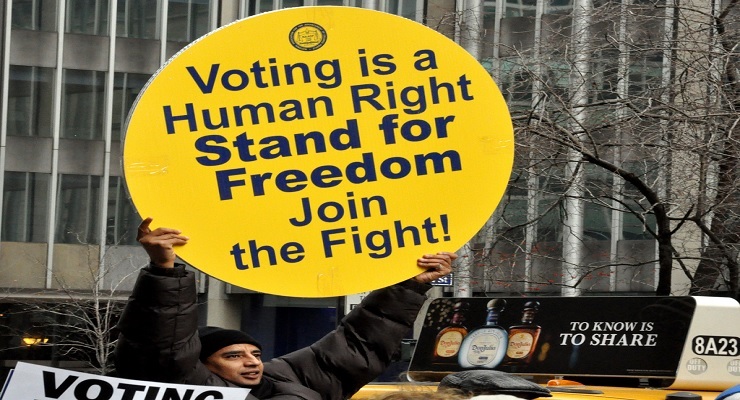
The 2018 midterm election has been clouded with voter suppression issues in various states like Georgia, North Dakota and others. Some actors are trying to make it difficult for voters to cast their ballots. Voter suppression has, however, not stopped American citizens from struggling to expand their democratic rights. Take felon voting for example, ballots across the country are set to increase voting rights and improve representation if existing restrictions on felon voting are relaxed. A recent Washington Post article explained:
“An extraordinarily harsh felony disenfranchisement law, one that dates to the Jim Crow era and bars citizens with any kind of felony conviction from voting for a lifetime. A drug-possession conviction at 18 means a 60-year-old can’t cast a ballot. Today, 1.6 million otherwise eligible Floridians are disenfranchised, including 1 in 5 black people of voting age.”
There are more and more voices and actions geared towards giving more access to the ballot box to ex-convicts. According to polls, the November ballot may restore voting rights for many Americans. A bill in Congress on the question will need to have 60% of the Congress vote for it before it can be passed and polling has generally shown close to 3/4 of voters support it:
“Then there’s partisan gerrymandering. Politicians have manipulated district lines since the country’s founding, but computers have transformed gerrymandering into a precision mechanism to blunt the voice of voters. This year, the Supreme Court declined to make a major constitutional ruling to restrict extreme partisan gerrymandering. With Justice Brett M. Kavanaugh replacing Anthony M. Kennedy, hopes have dimmed for a legal breakthrough at the court.”
Leave a Reply